India and potatoes
- Sep 4, 2023
- 4 min read
"Potatoes seem to have become the roots of Indian cuisine, but India's relationship with potatoes is a little over 300 years." Armaan Sareen/LinkedIn

This is a lucky dip post - Charmaine Solomon's Complete Vegetarian Cookbook and her recipe for Spicy steamed potatoes. (no picture I'm afraid - just the recipe) Not very interesting I thought, but over a week or so I occasionally pondered on it and eventually thought that, of course, potatoes are not native to India, so what could I do with that? Indeed until the 16th century only the Peruvians knew of the potato - now the fourth of the world's largest agricultural crops - rice, wheat, maize - all grains - and then the potato. The foods that provide basic nourishment to the world.
It seems it's almost like the Italians and tomatoes, with potatoes having been embraced with huge enthusiasm by the Indians. Most of their street food is based on the potato, as well as various other well-known dishes, and India is now the fourth largest producer of potatoes in the world, after China, Russia and the Ukraine. And an aside - how amazing it is to find Ukraine among the top producers of all manner of agricultural products. I was dimly aware of it as being the bread basket of the USSR, and so the current devastating situation explains the world's interest, in ways other than the political one.

But I digress. First a little history. How did India get potatoes anyway? And no it wasn't the British. Well not at first. Initially it was the Portuguese and the Dutch, who in the early 17th century introduced potatoes to the west coast areas where they had influence. The rest of the country did not know of them until the British East India Company, through the port of Calcutta - shown here - brought them into the country.
The Indian version of Condé Nast's Traveller magazine has an interesting article about the role of the potato in India and particularly the reasons for the British introducing it. After all it was a relatively new import to Britain too so not quite as dominant as it is now. Of course,
"The push didn't come with an entirely noble agenda and was part of the British "civilizing" mission. The idea was to replace local vegetable varieties with more superior plants" Traveller Magazine
Another enlightening article on the website Atlas Obscura, explains some of the different attitudes that the British had:
"As one colonial official wrote in a 1789 letter, the potato was a “substantial provision for the Labourer,” which would help “improve and extend materials for foreign trade.” The potato, for the British, represented a tool through which they could expand their corps of colonial laborers, spanning the globe from Belfast to Bombay." Atlas Obscura
But it was even more than that - there was even a missionary element to it:
"the ruling elite at the time understood public happiness as the “highest aim of government.” The potato as a tool to increase public happiness meant it embodied Britain’s supposed right—and by extension moral imperative—to rule India." Rebecca Earl/Atlas Obscura

Whatever the somewhat dubious aims of the British, however, the Indians embraced the potato with enthusiasm, although not in the way that the British intended - as a replacement for rice. Instead they used it as a replacement for yams and various other tubers. And indeed they even combined it with rice and came up with Aloo biryani.
But carbohydrate with carbohydrate doesn't end there. There are possibly endless examples, of delicious, but very possibly not that healthy dishes such as samosas - the vegetarian versions of which virtually always include potatoes; my personal favourite in Indian breads - aloo paratha and it's relative potato stuffed kulcha, not to mention the favourite Mumbai street food - vada pan - a bun stuffed with a potato cake.
Well if you are hungry and you are poor what could be better?
"Consider the potato as a salve for hunger ... Some historians have even argued that the potato spurred the rise of the West by ending famines and feeding rapidly growing populations." Traveller Magazine
As the Irish potato famine so tragically demonstrated the potato can sustain you healthily enough - perhaps with some milk because:
"Potatoes contain nearly every important vitamin and nutrient, except vitamins A and D, making their life-supporting properties unrivalled by any other single crop. Keep their skin and add some dairy, which provides the two missing vitamins, and you have a healthy human diet staple" BBC Travel
I adore potatoes so it's nice to know that my passion has logic.
I don't think the Indians have dreamt up any potato desserts - has anyone? However, they have incorporated potatoes into every other part of the day's food, from breakfast to supper because:
"It is an ingredient so plain that it takes on the flavours of whatever it is added to. It is also versatile enough to be reinterpreted for every meal of the day in a different form." Traveller Magazine
Some examples you will encounter in any Indian restaurant - aloo saag, aloo gobi, aloo matar,- i.e. with spinach, cauliflower, and peas - with an Ottolenghi variant on the pea version
But back to the beginning and Charmaine Solomon, whose steamed spiced potatoes is a variant in itself of the well-known Bombay potatoes, that seem to be a popular modern dish. I have no idea whether this is an actual Indian dish, although I'm sure that there are some, and I'm also sure that the spices that are tossed with the frying potatoes vary from cook to cook. So here are a few examples beginning with Madhur Jaffrey' Potatoes four ways although I haven't shown them here. Of the others shown here some are theoretically 'authentic', others, very possibly not: Jamie Oliver's Bombay roasties - no recipe online - it's in his British book; Christine Manfield's Spiced potatoes, also sadly not online; Jamie Oliver's Bombay potatoes with vine tomatoes and fresh spices and also his Bombay potato salad. Finally if you mash the potatoes you get another popular street food - aloo tiki - these being from Bon Appétit.
The entire world, almost - I'm not sure about more Eastern Asian countries - have embraced potatoes. And why wouldn't you? So versatile, healthier than you might think, cheap and available all year. Love them.






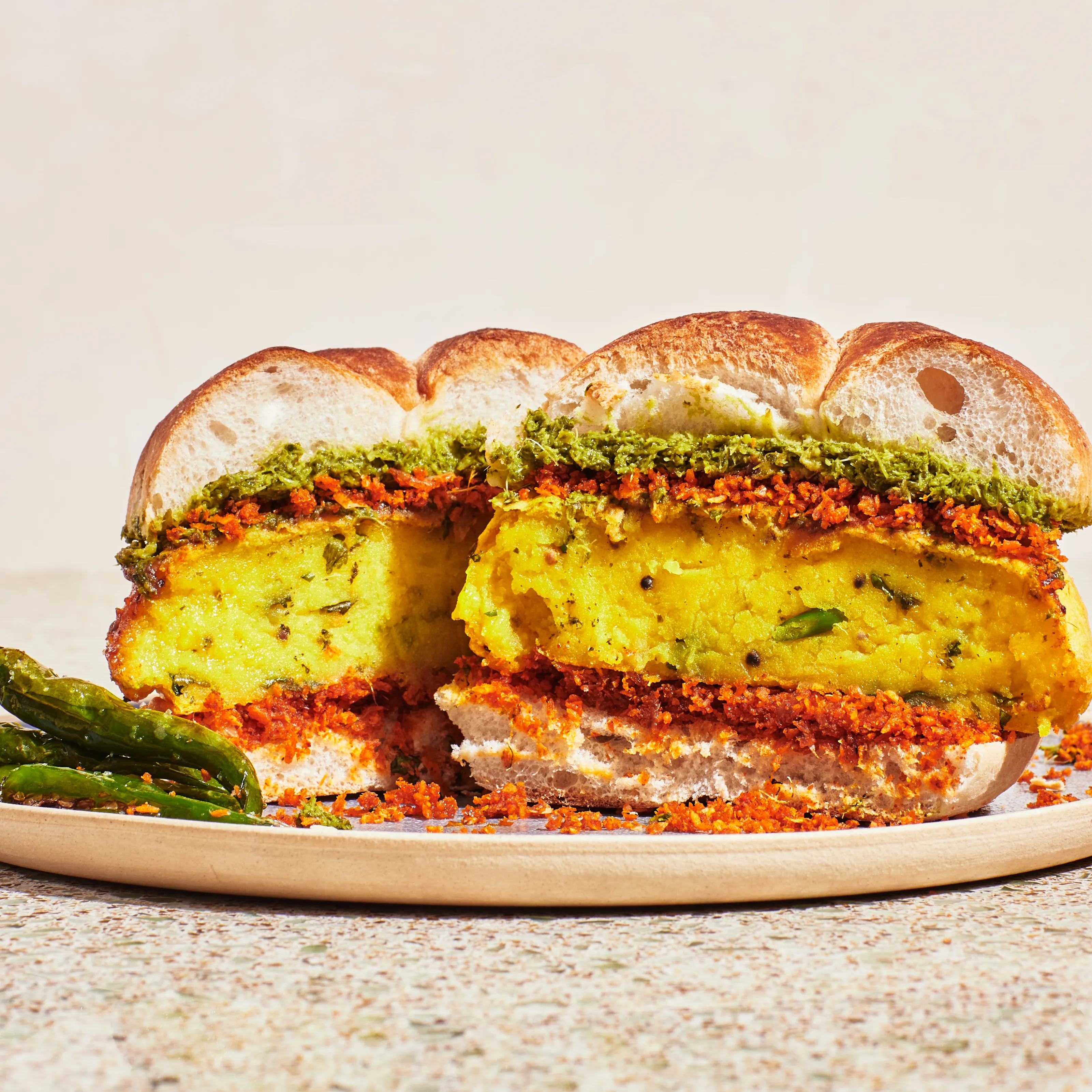
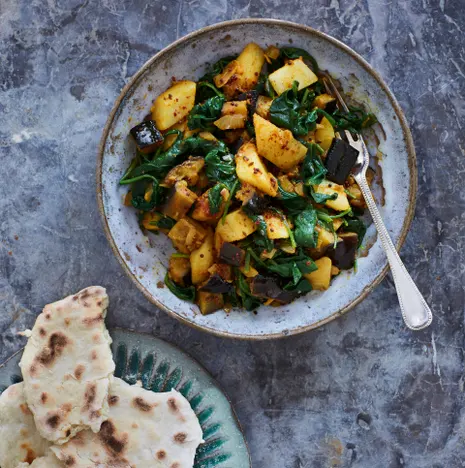








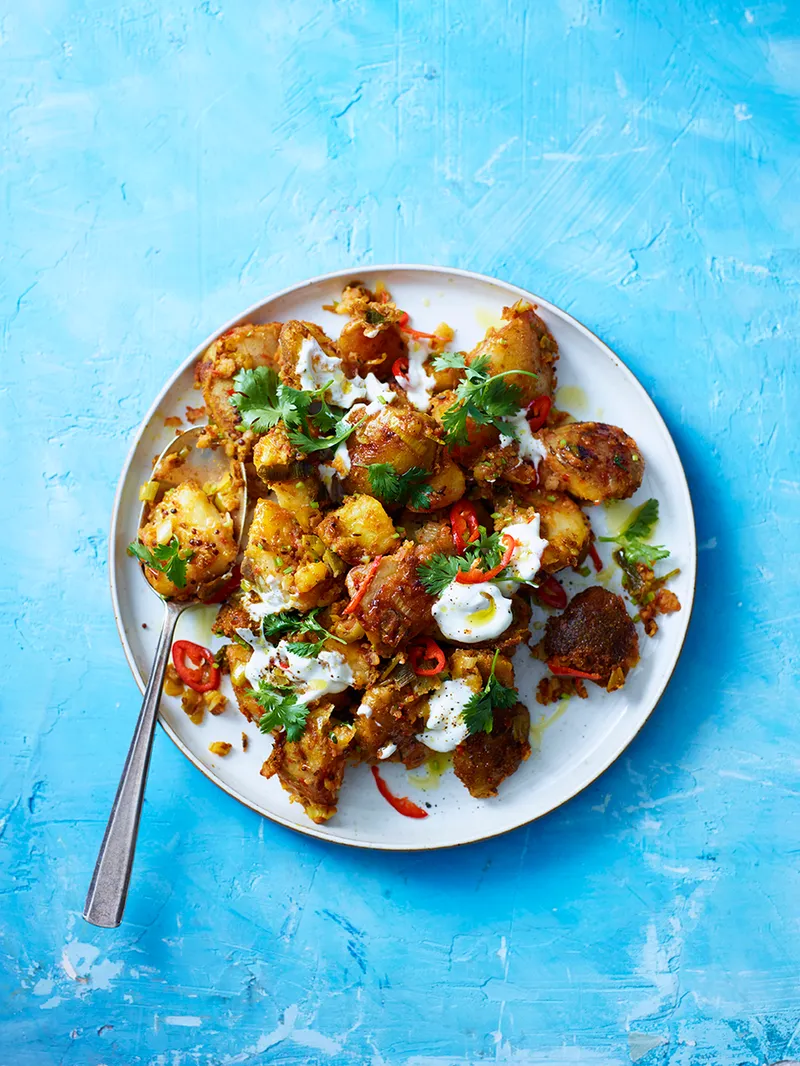
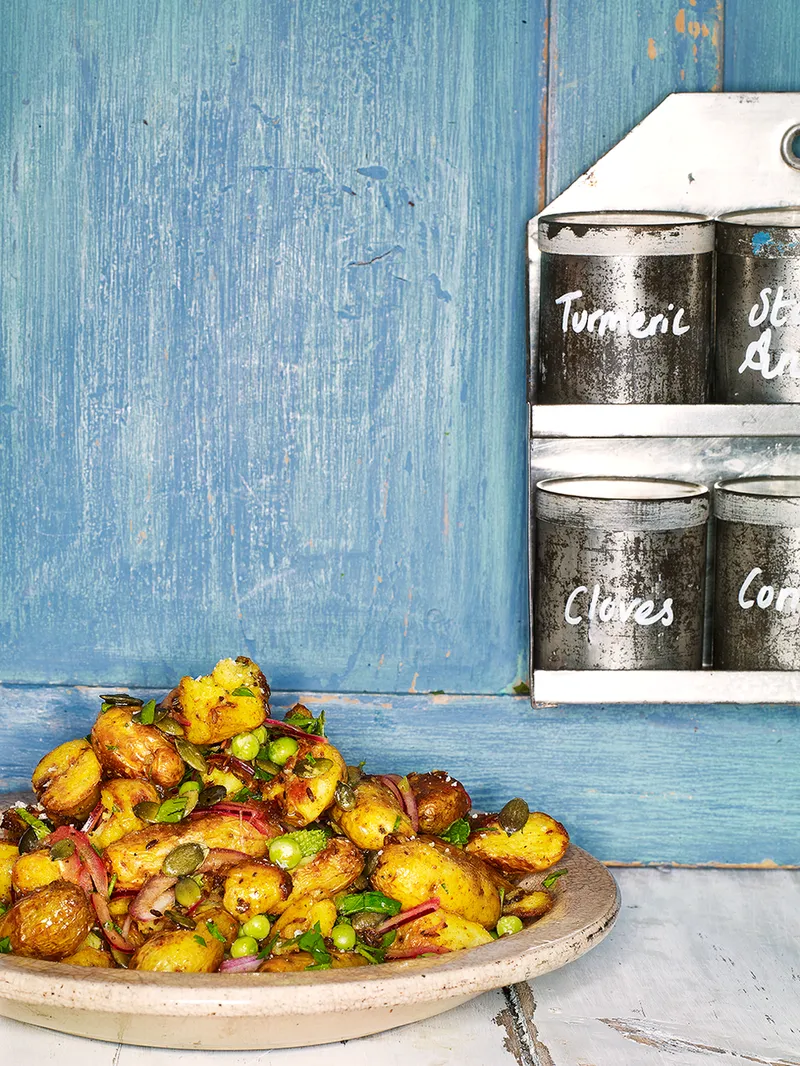
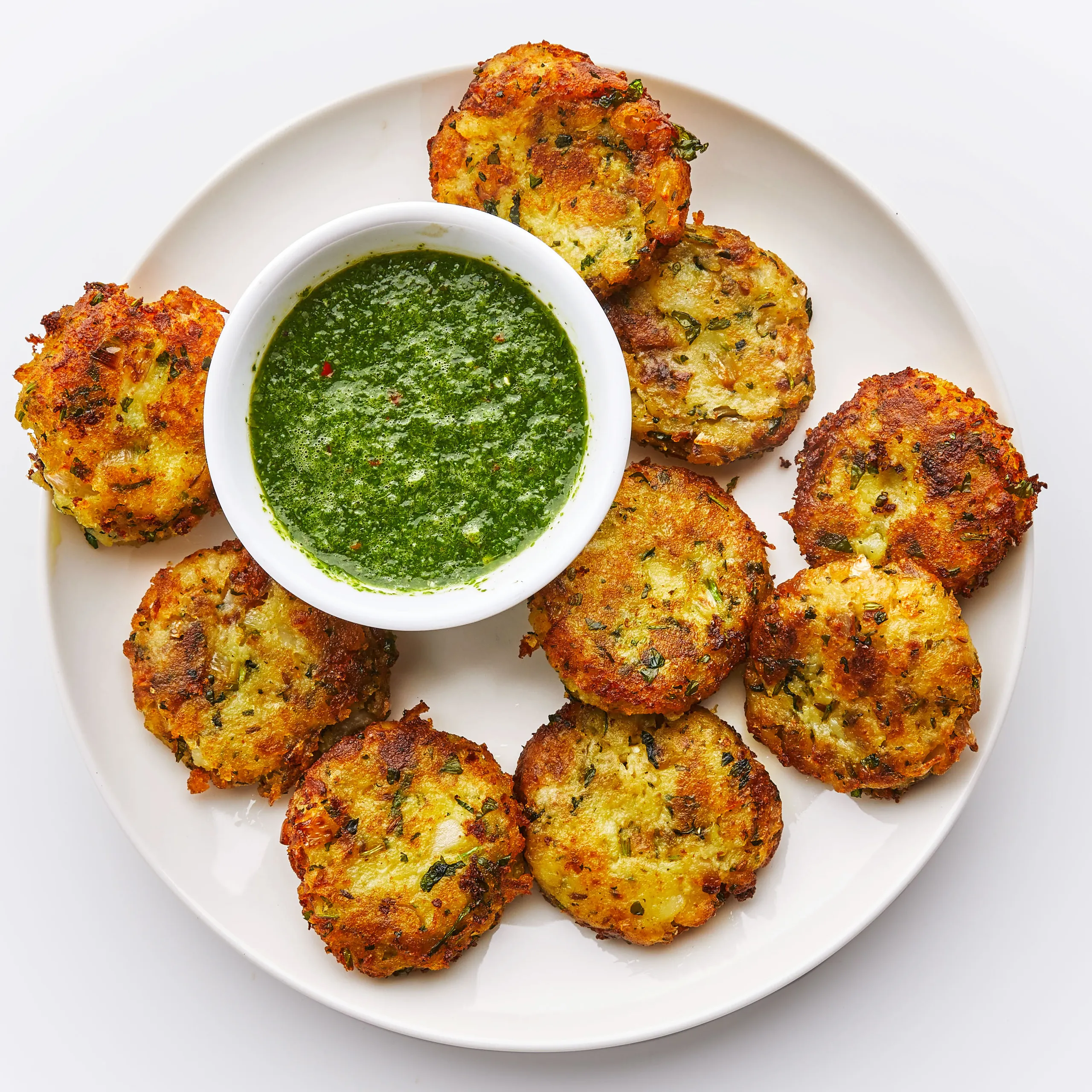



Comments